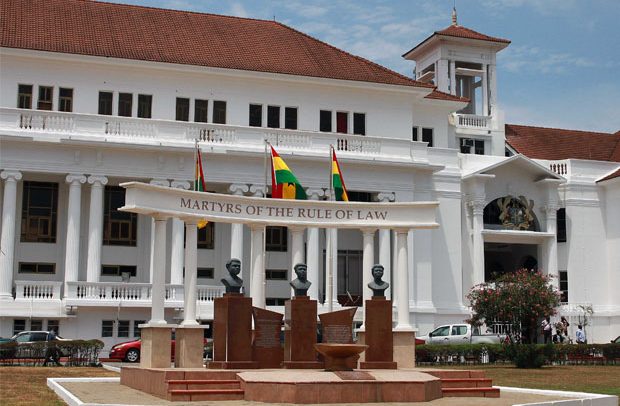The Supreme Court has set January 26, 2021, for the commencement of the full trial of the 2020 Election Petition.
The seven-member panel decided on issues for the trial, which include whether or not the petition disclosed “any reasonable cause of action.”
Secondly, the Court will determine whether or not no candidate obtained 50 per cent of the total valid votes cast.
Thirdly, it will ascertain whether or not the second respondent (Nana Addo Dankwa Akufo-Addo) obtained more than 50 per cent threshold with or without Techiman South.
Again, the Court will ascertain whether or not there were violations of law in the conduct and declaration of the 2020 Presidential Election.
Finally, the Court will ascertain whether or not allegations of vote padding affected the results of the 2020 Presidential elections.
The Court has set timelines for the parties to file their witness statements – the Petitioner is to file witness statements by close of tomorrow, Thursday, January 21, while the respondents are expected to file theirs by close of Friday, January, 22,2021.
The Court did not hear the review of the ruling on the application of yesterday’s interrogatories and adjourned it to January 28.
In his petition, Mr Mahama contended that no candidate won the 2020 Presidential election and, therefore, the declaration of President Akufo-Addo, as the winner of the election by the Electoral Commission Chairperson, Mrs Jean Mensa, was “Null and void”, unconstitutional and of no legal effect.
The Petitioner argued that as per the results announced by Mrs Mensa on December 9, 2020, no candidate got more than 50 per cent of the total valid votes cast as required by Article 63 (3) of the 1992 Constitution.
He held that the EC Chairperson announced the total valid votes cast as 13,434,574, minus the results of Techiman South with President Akufo- Addo obtaining 6,730,413 of the votes, representing 51.59 per cent of the votes, while he (Mahama) got 6,214,898, representing 47.366 per cent of the votes cast.
It is the case of Mr Mahama that per the figures, the actual percentage for President Akufo-Addo minus Techiman South ought to be 50.098 per cent and not 51.595 per cent as announced by the EC Chair.
He also argued that his percentage minus Techiman South should be 46.26 per cent and not 47.366 per cent.
Mr. Mahama, also argued that, Techiman South, had a total voting population of 128,018 and if that was added to the total valid votes cast as declared by the EC, it would be 13,434,574 plus 128,018 (13,562,592).
He said it was erroneous for the EC to state that even if all the votes in Techiman South were added to the petitioner’s votes, President Akufo-Addo’s votes would remain the same at 6,730,413, now yielding 49.625 percent whiles the votes of the petitioner would increase to 6, 324, 907, now yielding 46.768 percent.
Accordingly, the EC Boss‘s claim in the purported declaration that, adding all the 128,018 votes in Techiman South to the votes standing in the name of the petitioner would not change the results, was “clearly wrong”.
President Akufo-Addo and the EC, in their respective responses, argued that the petition was “incompetent”, “lacked merit” and “raised no reasonable cause of action.”
They further contended that the petition did not meet the requirements of a Presidential Elections Petition as stated in Article 64(1) of the 1992 Constitution and same was, therefore, incompetent.
They said because the petition made no allegations of infractions in the election at any of the 38,622 polling stations and 311 special voting centres.
The EC argued further that the petition was “incompetent” because, it did not contest “the lawfulness of votes,” obtained by any candidate in any polling station where the election was held.
The EC admitted that Mrs Mensa inadvertently read the figure representing the total number of votes cast as the one representing the total number of valid votes cast and also gave the percentage of the votes garnered by President Akufo Addo as 51.59 per cent instead of 51.295 per cent.
It, however, averred that the EC corrected the errors on December 10, 2020, and even stated that “the corrections and clarifications did not affect the overall results as declared.”
The EC, therefore, held that Mr Mahama’s “deliberate” reliance on the figures declared on December 9, last year, to make a case that President Akufo-Addo did not obtain more than 50 per cent of the valid votes cast was “misleading, untenable and misconceived.”
For President Akufo-Addo, the corrections by the EC to the declaration on December 9, were done within the powers of the EC and same did not breach any law.
GNA


